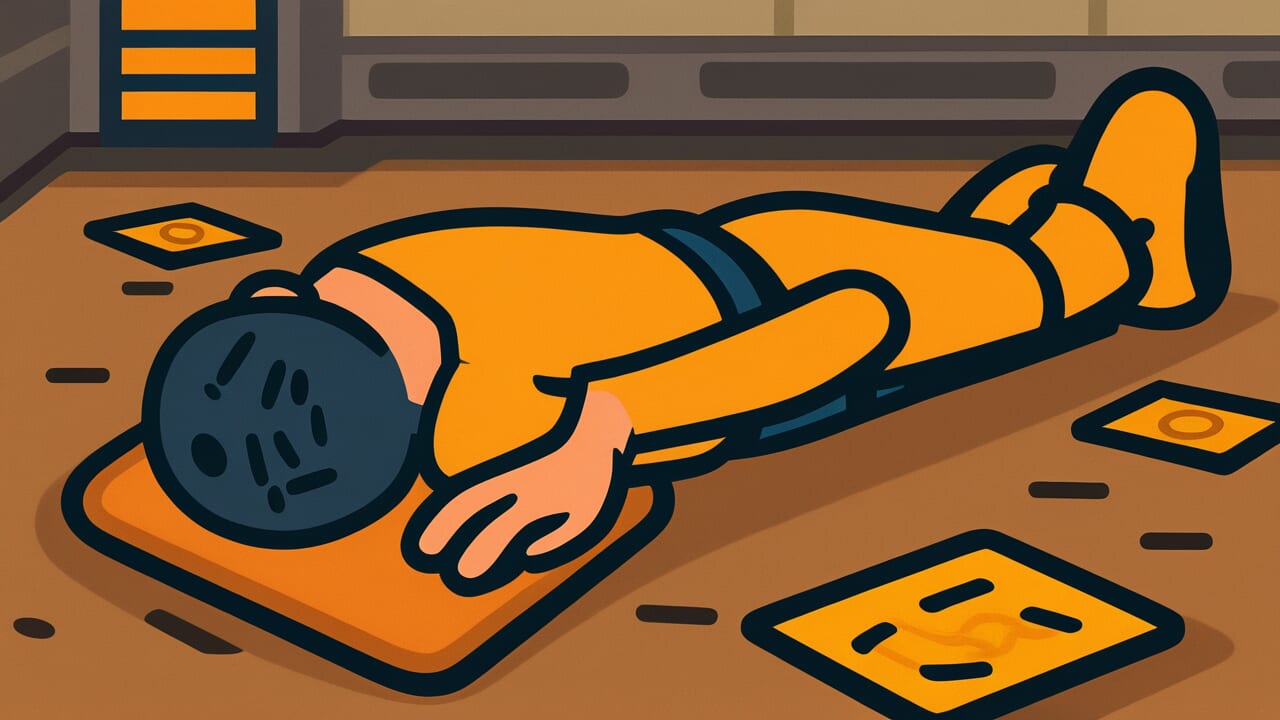How to Read “The dying person is poor”
Shinu mono binbō
Meaning of “The dying person is poor”
This proverb means that the person who dies suffers the greatest loss. In other words, it teaches that no matter how difficult your situation is, as long as you’re alive, there’s still hope and possibility.
People use this saying to encourage someone in a desperate situation or to explain the importance of life. It’s meant for people facing life’s hardships like illness, financial trouble, or relationship problems.
The message is clear: “Being alive itself has value.”
This expression works by contrasting life and death through the easy-to-understand concept of economic gain and loss. This makes the value of life feel real and tangible.
By using the everyday word “poor,” it avoids difficult philosophy or religion. Instead, it speaks to our daily common sense.
Even today, people receive this saying as a positive message: “As long as you’re alive, there’s a way forward.”
Origin and Etymology
No clear written records explain the origin of this proverb. However, we can make interesting observations from how the words are structured.
The word “binbō” (poor) doesn’t just mean economic poverty. It has been used more broadly to mean “suffering a loss” or “being unfortunate.”
Here, “poor” likely carries this meaning of “suffering a loss.”
The background of this proverb connects deeply to Japanese views on life. Buddhist thought holds that life itself has value. As long as you’re alive, you can practice and do good deeds.
In folk beliefs too, having life has always been considered the greatest treasure.
The expression “The dying person is poor” probably arose naturally among common people. In eras when war, famine, and disease threatened life constantly, people tried to hold onto hope.
They believed that “no matter how hard things get, as long as we’re alive, we can manage somehow.” This desperate hope is condensed into these few words.
The structure of the phrase itself is striking. By combining the contrasting words “dying person” and “poor,” it vividly contrasts the value of life and death.
Usage Examples
- I failed in business and ended up in debt, but “The dying person is poor,” so as long as I’m alive, I can start over
- I encouraged my friend in the hospital by saying “The dying person is poor,” so don’t give up and keep fighting
Universal Wisdom
The proverb “The dying person is poor” contains the absolute value of life that humans instinctively understand. Why has this saying been passed down for so long?
It’s because humans constantly swing between despair and hope.
Life always brings difficulties. Economic ruin, illness, broken relationships, shattered dreams. In such moments, people feel “it’s all over.”
But our ancestors knew something important. No matter the situation, as long as you’re alive, things can change.
The deep wisdom of this proverb lies in viewing life and death through the extremely practical lens of “profit and loss.” It’s not lofty philosophy.
It’s rooted in the common person’s sense of daily life, which is why it resonates. The choice of the word “poor” is brilliant.
Economic poverty can be changed through effort, but death cannot be undone. This contrast makes the value of living stand out sharply.
Humans cannot live without hope. At the same time, we have the weakness of being easily swallowed by despair.
This proverb understands both sides and teaches us that “being alive itself is your greatest asset.” Even as times change, this human essence doesn’t change.
That’s why these words still reach our hearts today.
When AI Hears This
This proverb describes a dangerous state where two cognitive errors in the human brain activate simultaneously.
First, there’s the psychology of trying to recover already lost resources. For example, someone who loses 10,000 yen at pachinko thinks “if I stop now, that 10,000 yen is wasted” and puts in another 10,000 yen.
At this moment, the brain is dominated by the unchangeable fact of past loss. Economic research shows people feel the pain of losing 100 yen about 2.5 times stronger than the joy of gaining 100 yen.
In other words, the act of confirming a loss causes intense pain to the brain. So people cling to the hope that “I might still recover it.”
What’s more interesting is that this effect strengthens as the loss grows. Someone who lost 30,000 yen finds it harder to quit than someone who lost 10,000 yen.
In the brain, “the pain of confirming a 30,000 yen loss” exceeds “the risk of losing another 10,000 yen.” This creates a vicious cycle where losses snowball.
In the investment world, “stop-loss rules” are considered crucial. This is precisely because the human brain is designed to instinctively refuse cutting losses.
This proverb has been pointing out the value of judging by numbers rather than emotions for hundreds of years.
Lessons for Today
What this proverb teaches us living in modern times is a shift in perspective during difficult situations. In modern society, success and failure are overemphasized.
One failure can make you feel like your life is over. But this proverb teaches that “being alive itself is your greatest asset.”
Specifically, when facing failure or setback, you can start by confirming the fact that “I am alive.” Even if you lose your job, relationships break down, or dreams shatter, you’re still here.
That fact is the source of all possibilities.
This proverb also has the power to cultivate empathy for others. When you see someone suffering, instead of easy encouragement, you can feel the fundamental gratitude of “thank you for being alive.”
Modern people have many things, but sometimes lose sight of what’s most important. This proverb helps us notice the absolute value of life.
No matter the situation, if you’re alive, the day will come when you can laugh again. Continuing to hold that hope is the way of life this proverb teaches.



Comments